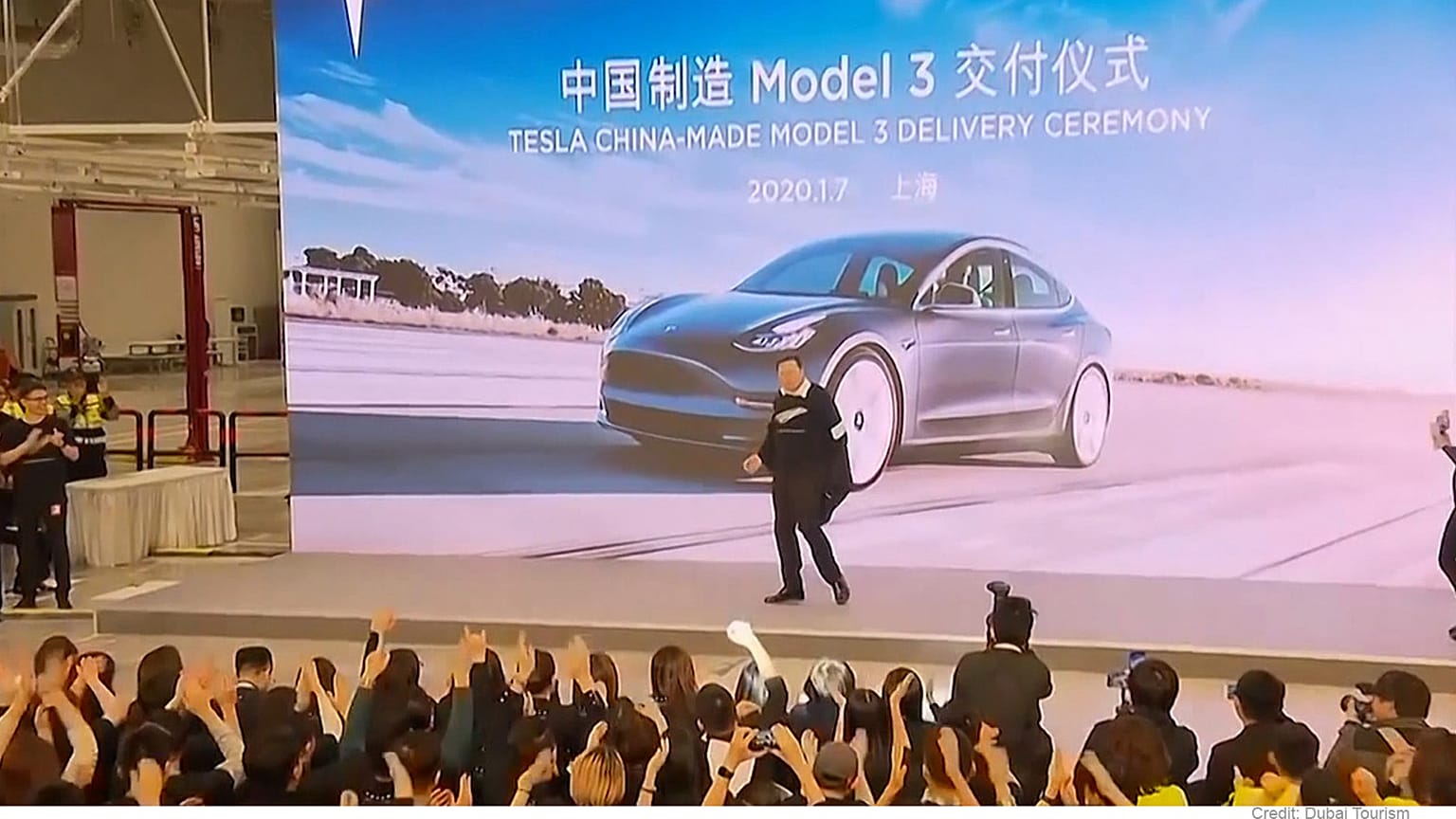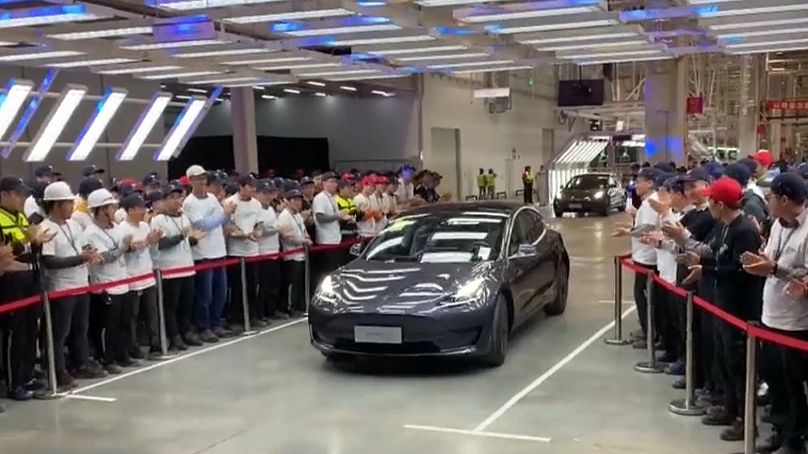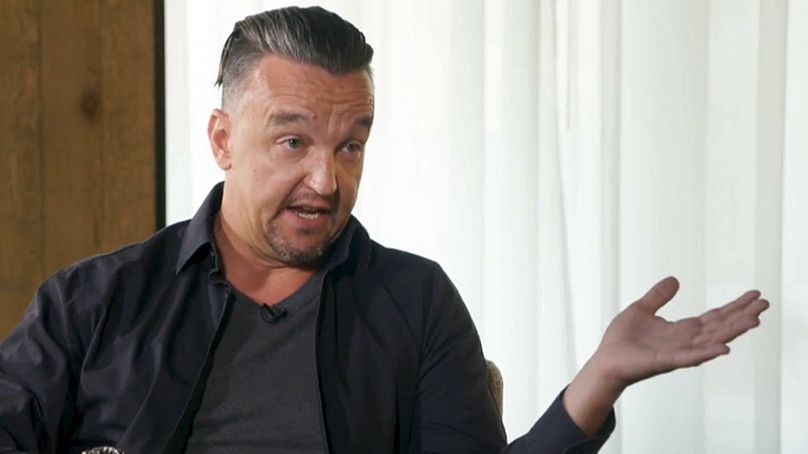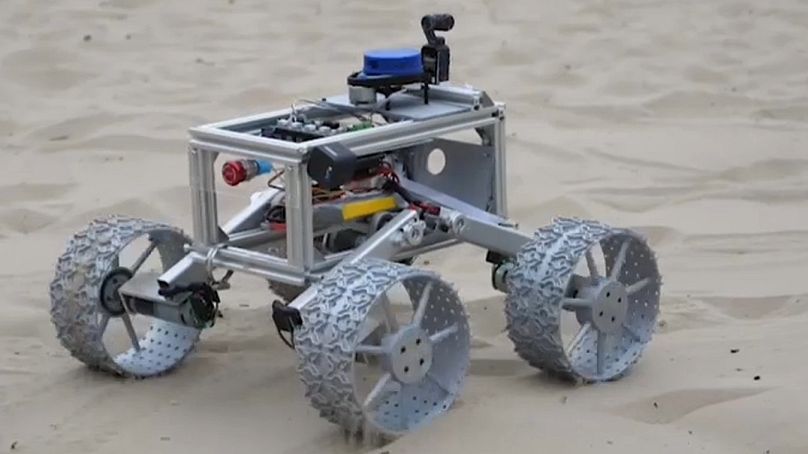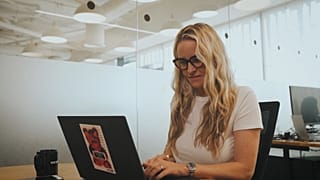Elon Musk’s electric car production company appears to have turned a corner as it entered 2020.
 ADVERTISEMENT
ADVERTISEMENT
 ADVERTISEMENT
ADVERTISEMENT
The manufacturer delivered a record 112,000 vehicles in the fourth quarter of last year and has recently started production at a new factory near Shanghai.
That pushed 2019 deliveries to over 367,000 vehicles, which was 50 per cent above the 2018 total.
At the opening of the new factory in Shanghai, Musk said: “We intend to continue to make a significant investment and increasing the investment in China and making the Model 3 and the Model Y and future models also in China.”
But the road ahead is full of challenges amid workforce cuts and scrutiny over Tesla’s autopilot system following three fatal crashes in the United States.
But despite scepticism Tesla is holding on strong. Shares have rocketed 91.1 per cent over the past three months, bringing its market capitalisation to more than 70 billion Euros.
New kid on the blockchain
Blockchain technology is transforming the way businesses operate and reimagining funding models across the board.
UK-based property development firm Brikcoin believes its asset-backed cryptocurrency can respond to Britain’s affordable housing crisis and make property a more liquid asset while turning a tidy profit.
Brikcoin’s founder James Hare told Business Line the idea came out of “a lifelong passion for property and development” and a desire to use technology to help solve the affordable housing crisis.
“It's our number one economic crisis in the UK. We've got 1.8 million people on waiting lists and growing by the day. We need over three million homes to be built over the next 20 years. And currently we're delivering a fraction of that.”
Hare says the blockchain real estate model has several advantages over other investments.
“First and foremost we're asset backed. That means every development that we build we retain ownership of. When we've built that development, we give the keys to that development to the local authority for a period of 50 years in return for a lease. But as I say we retain ownership of the building.
"Secondly we make competitive profit like any private developer would. And thirdly, obviously people want to hold the coin and the greater market wants to trade and buy the coin for the future value of the coin, given the fact that we're a fast growing development company.”
Start-ups join the space race
Once the sole dominion of governments and military complexes, space exploration in the 2020s is opening up worlds of opportunity within the private sector.
The so-called ‘lunar economy’ is democratising new frontiers for start-ups with interplanetary ambitions.
UK-based start-up SpaceBit has its gaze firmly fixed on the moon, hoping to offer the UK its first lunar lander by 2021.
Its founder and chief executive, Pavlo Tanasyuk, told Business Line: “We've been working in stealth mode for quite a few years and now is the time to reveal our two exciting projects. One of them is Space Moon Rover and the other one is a lander. It's actually the first ever lander which can fly again and re-land on different locations on the moon.”
With investors predicting the ‘space economy’ will reach 1 trillion US dollars by 2030, a sector that was once ‘pie in the sky’ for any start up is now tantalisingly within reach.
But with such huge overheads for research and development, is it really commercially viable for a start-up?
“We believe in the lunar economy,” Tanasyuk says. “We believe in building it. We believe in extracting mineral resources on the moon's surface as well in the near future.”
But SpaceBit isn’t just reaching for the moon.
“If you think about it, the moon may be in a very interesting spot to ultimately go somewhere else, to go to Mars. In a few years’ time we want to successfully land our lunar rover on the moon and then followed by the lunar lander. So we'll be in the position to offer commercial opportunities for other companies to fly with us to the moon. And not only companies, but also governments.”
